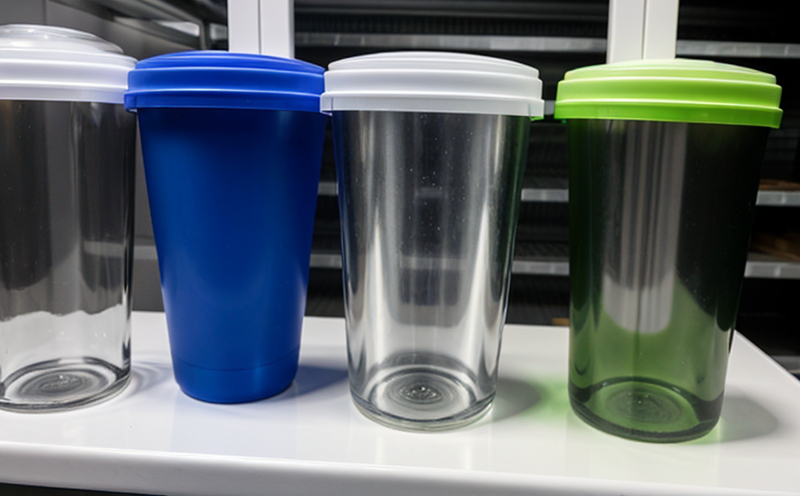ISO 720-4 Density Measurement After Annealing
The ISO 720 series of standards provides guidelines for the testing and evaluation of glass packaging materials. Specifically, ISO 720-4 focuses on density measurement after annealing, a critical step in ensuring that glass containers meet quality and safety requirements.
Density is an important property that affects the overall performance and reliability of glass packaging. After the manufacturing process, including shaping, forming, and annealing, it is essential to measure the density accurately. This measurement helps ensure that the final product meets specified standards for strength, durability, and resistance to external factors like temperature changes or chemical exposure.
During annealing, a controlled heating and cooling process, the glass undergoes structural relaxation which can slightly alter its density. Thus, measuring density after this stage is crucial to assess the post-annealed properties accurately. This measurement ensures that any deviations from the expected range are identified early in the production cycle.
The testing procedure outlined in ISO 720-4 involves several steps including specimen preparation and calibration of equipment. Specimens must be representative of the batch being tested, ensuring consistency throughout the test results. Calibration is essential to maintain accuracy over time, especially given the precision required for density measurements.
The use of this standard ensures compliance with international quality standards, thereby enhancing product reliability and reducing potential risks associated with non-compliant materials. This approach supports the development of high-quality glass packaging that can withstand various environmental conditions while maintaining its integrity.
| Step | Action | Considerations |
|---|---|---|
| 1. Specimen Preparation | Cut the specimens to standard dimensions and shapes. | Ensure uniformity in size across all samples for accurate comparison. |
| 2. Calibration of Equipment | Calibrate the densitometer according to manufacturer’s guidelines. | Use certified reference materials during calibration to ensure accuracy. |
| 3. Measurement | Measure each specimen at various points using the densitometer. | Average multiple measurements for more reliable results. |
The importance of density measurement cannot be overstated as it directly influences the performance characteristics of glass packaging. Accurate and consistent density testing helps manufacturers identify potential issues early in the production process, leading to improved product quality and reduced waste.
In summary, ISO 720-4 is a vital standard for ensuring that glass packaging materials meet stringent quality and safety standards post-annealing. By adhering to this protocol, companies can enhance their reputation for producing reliable and high-quality products, which ultimately benefits both the manufacturer and consumers.
Eurolab Advantages
At Eurolab, we are committed to providing comprehensive and accurate testing services for glass packaging materials. Our expertise in ISO 720-4 density measurement ensures that our clients receive reliable results every time.
- Precision Equipment: We utilize state-of-the-art densitometers designed specifically for glass material testing, ensuring consistent and accurate measurements.
- Experienced Personnel: Our team of experienced technicians is trained to handle complex tests with precision and care.
- Compliance Assurance: Our procedures are meticulously aligned with international standards, guaranteeing that your products meet the highest quality requirements.
- Timely Reporting: Results are delivered promptly, allowing you to make informed decisions quickly.
Our commitment to excellence extends beyond just compliance. We provide detailed reports and recommendations based on our findings, helping you optimize your production processes for better outcomes.
Quality and Reliability Assurance
The quality of glass packaging is paramount in ensuring that the products they contain remain safe and effective. By implementing ISO 720-4 density measurement after annealing, manufacturers can ensure their final products meet stringent international standards.
Density testing helps identify any inconsistencies or deviations from expected values early in the production cycle. This proactive approach allows for corrective measures to be taken immediately, minimizing waste and improving overall efficiency.
Reliability is another critical aspect of glass packaging quality. Accurate density measurements contribute significantly to this by ensuring that the materials have consistent properties under various conditions. This consistency translates into more reliable products capable of withstanding diverse environmental challenges.
Furthermore, adherence to international standards like ISO 720-4 not only enhances product reliability but also fosters trust among consumers and stakeholders alike. It demonstrates a commitment to excellence in every aspect of your operations, which can be leveraged for brand reputation enhancement.
In conclusion, by leveraging our advanced facilities at Eurolab, you can rest assured that your glass packaging will meet the highest quality standards, providing both reliability and trustworthiness.
Use Cases and Application Examples
The ISO 720-4 density measurement after annealing finds extensive applications across various industries. Here are some key use cases:
| Industry | Application Example | Benefits |
|---|---|---|
| Beverage Packaging | Determining the density of beer or soda bottles ensures they hold the correct volume. | Prevents overfilling or underfilling, ensuring consistent product quality. |
| Pharmaceuticals | Measuring the density of pill containers to ensure proper dosage control. | Avoids errors in medication dosages, enhancing patient safety. |
| Cosmetics | Evaluating the density of cosmetic jars ensures they can hold the required product volume. | Ensures accurate packaging design for optimal use and storage. |
In each case, accurate density measurement post-annealing is crucial to maintain the integrity and functionality of glass packaging. These measurements play a pivotal role in quality assurance programs, helping to identify and rectify any issues before they impact end-users.





